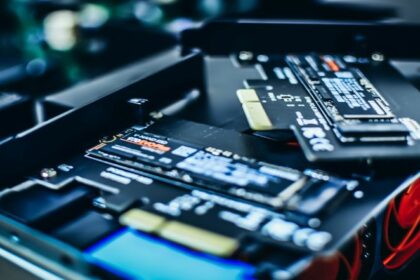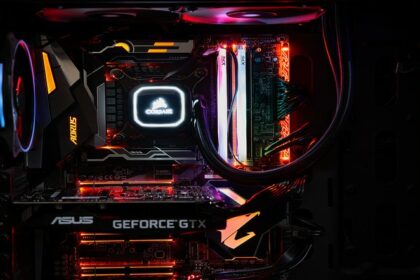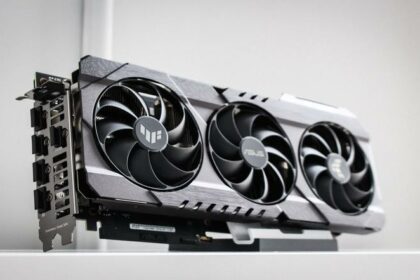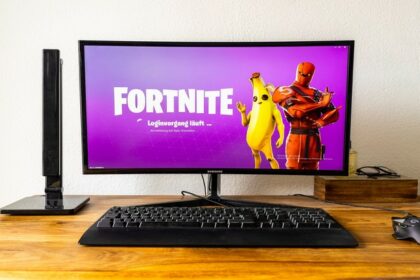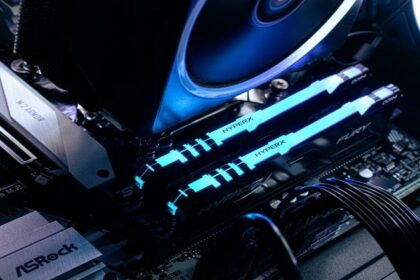While the obvious answer would be a resounding yes, it is important to know what the CPU actually does when gaming. The knowledge will give your more insight on things like PC building or if your current PC build can actually play a game you like in the future.
In another scenario where you are budgeting and you are thinking of going big on the GPU rather than striking a balance, you should read this article first to know how important is a CPU for gaming.
How Games Work
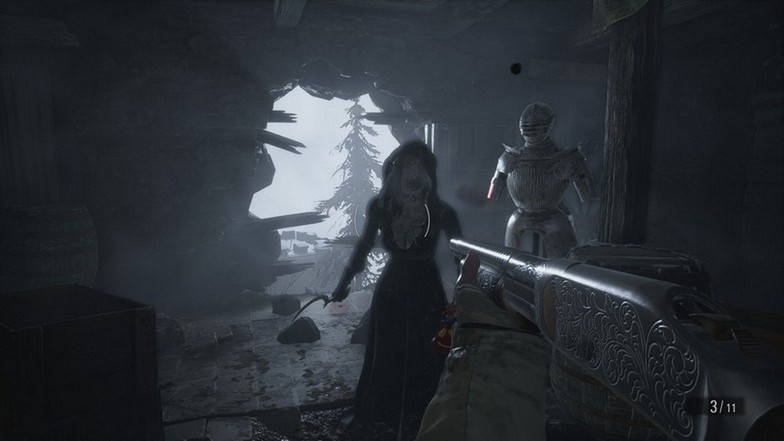
To be able to understand how important PC components are to games, you need to know what is happening on the backend of your system when you are playing a game. When you look at a game and its complexity, the first things that come into mind are the graphics and how detailed they are.
This is why it is a common assumption that gamers prioritize the power of their graphics card or GPU over any other components. While the GPU is also one of the most essential parts when it comes to gaming, it is not the most important one.
All the computer parts are valued differently and it depends on the type of game you are playing. If you have ever heard the term “CPU-intensive” and “GPU-intensive” before, you would know why. While games mostly use a mix of both elements, some games require more from your CPU than your GPU and vice versa.
CPU-intensive games
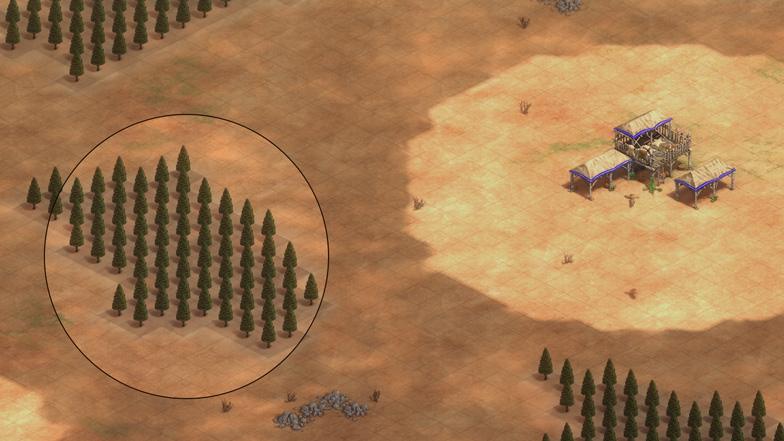
To help give you a perspective on knowing if a game would be CPU-intensive, you can look for certain signs that can indicate complexities that let your CPU process more data or basically increase CPU usage.
Everything being talked about here will be simplified so you can get a general idea of how it works because there are too many factors involved including a lot of technical terms that you would not even need to know about.
When you play a game, notice if there is any physics involved with the game mechanics. Let us compare Grand Theft Auto 5 and Demon Souls for this example. You would see random NPCs going around the city and minding their own business in Grand Theft Auto 5. In Demon Souls, you will see enemies do the same things with a particular set of moves for attacking.
If you defeat a random NPC in Grand Theft Auto, the game tries to mimic real-life physics. If you try to run over a random person in GTA, they will be sent flying. In Demon Souls, you will only see these enemies disappear after being defeated. Even if they are getting hit, there is not much game physics involved to require your CPU to compute or process anything additional.
You also have to take into account how the AI is programmed in a game. The more complex they are, the higher the CPU usage. Using the monsters in Demon Souls again as an example, they all have specific movement patterns with different attack sets to choose from. These are all being calculated by your CPU along with a lot of different things.
The CPU also gives orders to your GPU on what to show on your screen. Then, the GPU goes to work and puts on all the finer details involving what is about to be shown on your screen. If you are wondering what should CPU usage be when gaming, it will be hard to calculate.
You have to factor in the type of game and how complex it is including every tiny detail they add to know how much CPU usage will the game need because it fluctuates a lot. A good way to estimate is by looking at the system requirements.
Most of the game settings, when reduced, will reduce the load on your GPU and CPU. The developers factor this in when giving their recommended and minimum system requirements for each game.
With all these things mentioned, there is another factor to account for. This would be the memory (RAM) and game storage (HDD or SDD). Whenever you install a game, you choose a storage location for the game’s installation files. When you boot the game, there is no way your computer can run all the game’s assets.
The RAM stores all the temporary data needed for running the game. When the game runs, the RAM starts preparing the data to be processed by none other than the CPU. This data can be some of the things mentioned before, but those were only a fraction of the kind of data potentially being processed.
Let us take a game like Civilization 6 as an example. Each of the computer-controlled rulers will take turns each round with hundreds of options to do in each of those turns. As you progress to the later stages of the game, those hundreds of options might turn to thousands. The minds of all the computer-controlled rules will all be processed by your CPU.
These types of games (simulations, real-time strategies, intelligent AI, and complex environments) would be the ones that would require a lot of work from the CPU.
GPU-intensive games

While most games are probably GPU-intensive games, it is best to understand the role of the GPU when gaming. This is because both should be equally important. As mentioned before, it is the CPU that tells GPU what to do and what to render.
While the tasks sound so simple, it is the sole purpose of the GPU. Anything related to visuals will be rendered by the GPU and it will access its stored data of textures, models, and images from its own VRAM. The VRAM is separate from your own RAM because the GPU has no access to your computer’s memory. This is why you see a memory capacity when choosing a GPU.
For games that require a ton of assets to load like role-playing games, it will require a lot more VRAM to store more assets. This is why role-playing games like The Witcher 3 require a good GPU because it loads a ton of assets and the quality of the textures are extremely detailed.
To simplify this, the GPU handles the textures, lighting, positions of objects, shaders, ray tracing, and other graphic settings. After knowing all of this, it highly depends on the game you are playing and the settings you are playing it on. It is also worth mentioning that the resolution plays a big factor here. With more pixels available, it exponentially gives the GPU more things to render.
Again, this sounds so simple, but it is more demanding than the CPU. In a perfect scenario, what gamers should usually strive for is a balance between the two.
GPU vs CPU – What if There is an Imbalance?
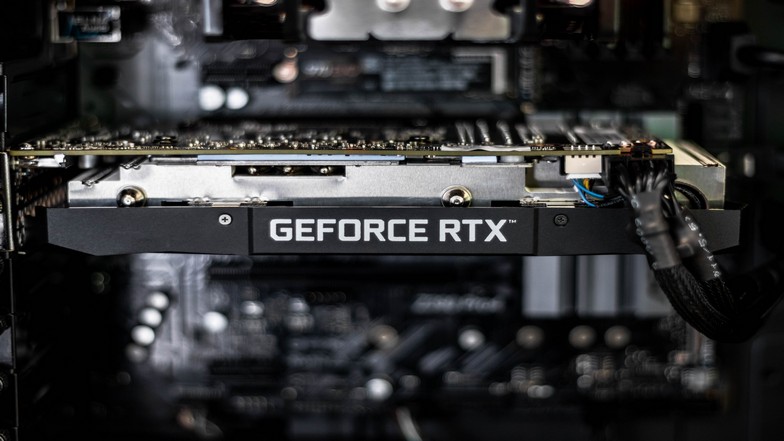
If your GPU is far more advanced than your CPU, it will likely cause inefficiencies within your whole system. Since the job description of the CPU has already been laid out above, you will see that it handles so many other aspects of a PC’s functionality and the GPU is only a branch of it.
With a significant imbalance between your CPU and GPU (with the GPU being greater), it will cause your CPU to bottleneck. It will be hard to manually learn how to fix a CPU bottleneck because there are only a few things you can do to. The best choice would be upgrading your CPU to fix the imbalance.
The same concept goes if your CPU is greater than your GPU. It will cause a GPU bottleneck, but this one is much more desirable than a CPU bottleneck. This is because the GPU only handles the visual side while the CPU handles the central processing of your computer. If you overwork your CPU, you will have a lot of tasks that can get interrupted.
Not only does your computer run inefficiently but also, your CPU might get overheated because of the number of requests it is processing. It might lead you to ask “how hot should my CPU be while gaming?“. There are many factors that involve CPU usage and CPU temperatures but overall, you would want to avoid this as much as possible.
With a GPU bottleneck, there should not be any problems as long as your GPU is not overclocked and overheated. When you see your GPU working at 100% efficiency, it actually feels like it is money well spent. You are utilizing your GPU to its full capacity and your PC is running smoothly. As long as you monitor everything, a GPU bottleneck should be fine.
Final Thoughts
If you are thinking of building your own PC with a specific budget, you should always go for a great balance among your computer components. There are only a few reasons why you should ignore some of the imbalances at times. This is only if you are thinking of upgrading a particular part in the future or, you are buying something at a discounted price.
You need to gauge what you need the most. With the explanation on CPU-intensive games and GPU-intensive games, pick one that you would like to focus on. If you would like to focus on the GPU, make sure it only has a slight difference in performance from your CPU.
In my experience, I am currently running an AMD Ryzen 7 5800X with a measly Nvidia’s GeForce GTX 1070Ti. Going overboard on the CPU allows you to freely multitask (as long as your RAM can handle it too) and, you would not have to worry about overheating because your GPU cannot demand anything crazy from your CPU.
If you have no choice because of your budget, make sure you prioritize your CPU. It does a lot of things including the gaming side. Going for a great gaming graphics card will also require the best gaming CPU because they are always partnered together.
You will never see Nvidia, AMD, or Intel release a computer component that is too advanced compared to the other parts because it will be pointless and inefficient.

